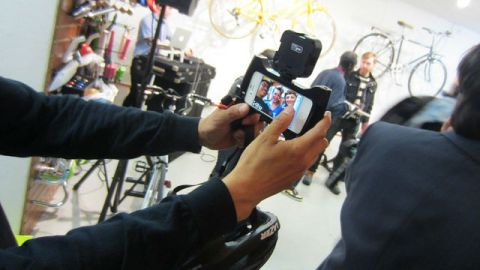“HAVING LIVED”

A few weeks ago my husband and I were out to dinner with some people. The table behind us was filled with eight young-ish women. They were having a bachelorette party, as we realized by using our dazzling powers of deduction—and, because the bride-to-be was wearing a sash across her chest that said, “BACHELORETTE.”
It didn’t look or sound like a very festive affair. Indeed, it was as funereal and dour as a bachelorette party could get.
We speculated that perhaps this was a crowd of work acquaintances and work-friends, and that they’d been corralled by office etiquette to take her out for drinks.
Or, it could be that the crowd wasn’t enjoying itself because each and every woman at the table was working her Iphone or similar device—silently and autonomously. They were entranced by a parade of photos, likes, or updates from many an elsewhere in the world, but not here.
Their form of interaction with each other was to take many photos of themselves, doing this thing—having this bachelorette party—which they could then post on Facebook. They all smiled broadly and happily at the second that the photo was taken, but these were the only moments when they appeared happy, so their visual archive was misleading.
The problem, of course, is that they weren’t actually doing this thing that they were documenting for Facebook: they weren’t having a party by the usual connotations of the term. They weren’t conversing or interacting with each other; they weren’t taking in the sights together; they weren’t making toasts or engaging in witty badinage.
They were taking photographs to memorialize a non-event whose main excitement and purpose was to have photos of it. The act of living the event—actually having the party, doing the celebration, enjoying each other’s company—seemed to have gotten lost in the act of memorializing it for Facebook.
I feel like there should be a new law of etiquette for parties and the dinner table, and it goes like this: If you are confronted simultaneously with an Iphone and a biological entity that has a pulse and breathes, then the thing that has the pulse and breathes must be given the priority.
On Facebook, however, it will look like they had lived, and had a real party.
Ernest Hemingway once said that he didn’t like writing. He liked “having written.” He liked having completed the task, and having it done with. His pleasures in the matter were largely retrospective.
Facebook life has been with us for some time. It’s not too early to take stock of the subtle ways that social media have changed our inner lives and social lives. I wonder if, among other things, Facebook has ever so slightly shifted our desire in life, more toward the documentation of events so that they can be reported and displayed on Facebook later, and less on the actual doing and experiencing of those events in the moment. It may have introduced at the least a new level of self-curation and self-narration, a consciousness even in the swim of life toward how it will be described, posted about, applauded, received, or photographed on social media.
In this sense, even mere mortals might be acquiring the self-alienation and self-consciousness of celebrities, who experience themselves both as individuals and as images, possessed and defined by others.
One hypothesis for future investigation is that we’re moving subtly from a people who like to live, to a people who like “having lived.” The events and moments of life as they happen are sometimes less absorbing or imaginatively rich than their completion, and subsequent display on Facebook.





